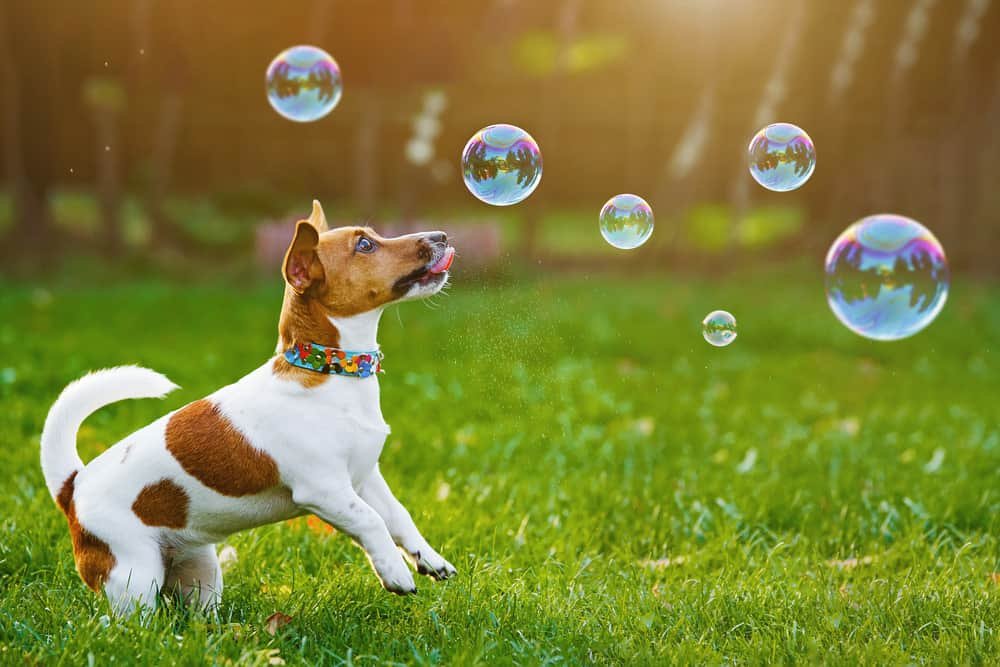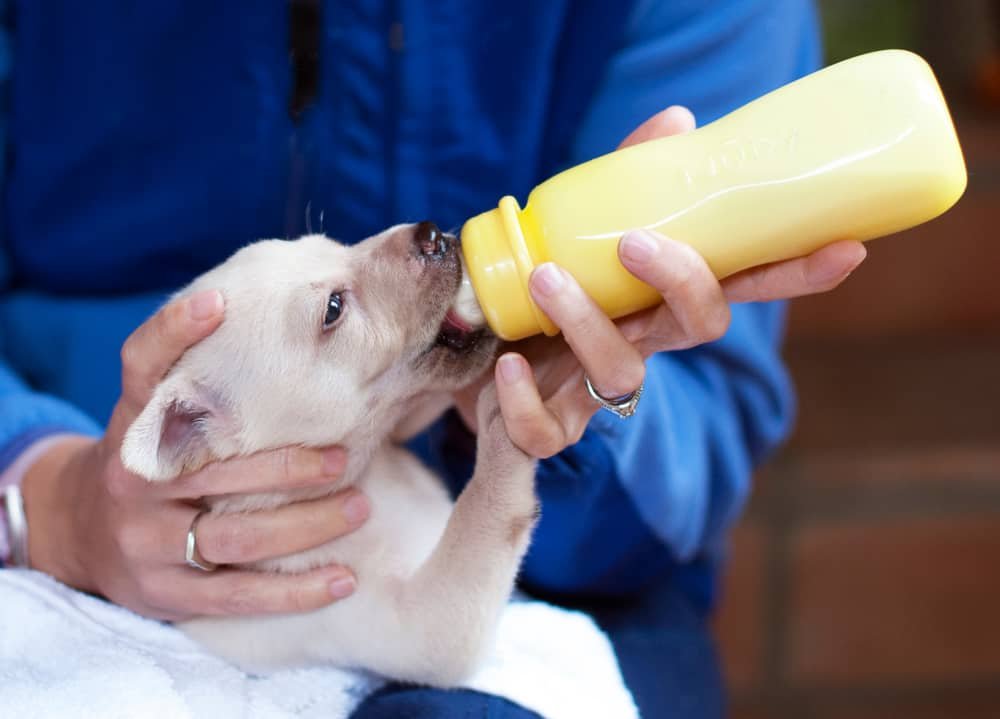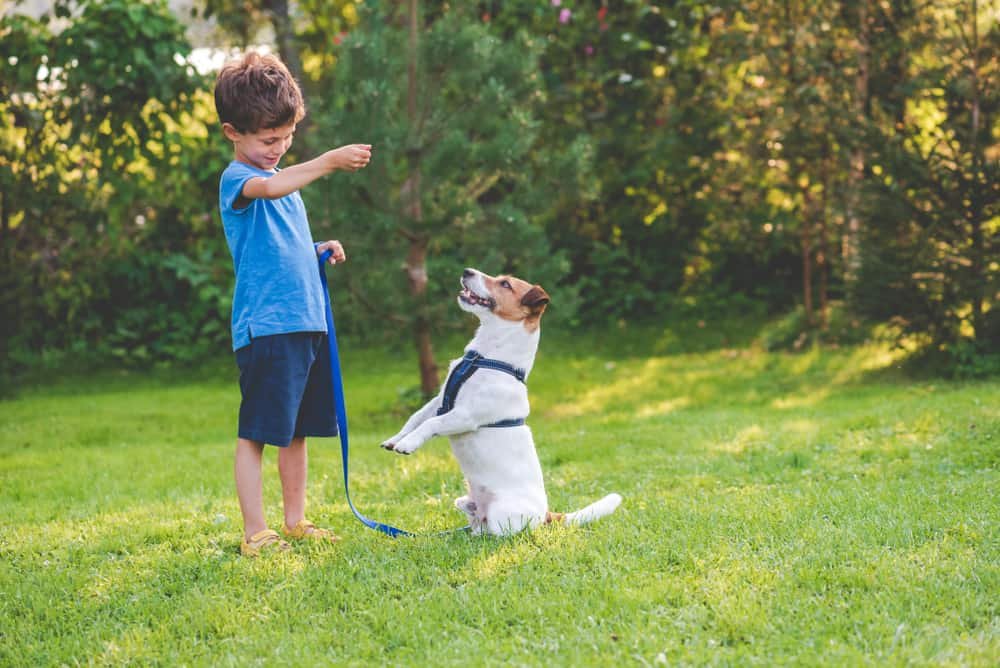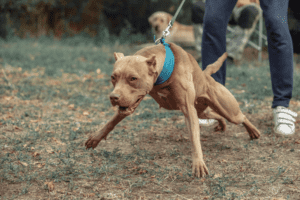Dogs are one of the most popular pets in the world and there is a lot of variation in their size. Some people may wonder when do dogs stop growing in height.
This post will explore some of the factors that contribute to a dog’s growth, as well as when they reach their full size. So, whether you are adopting a puppy or have an adult dog, read on to find out more about canine growth!
Table of Contents
Puppy Development Stages
Before going to understand about When Do Dogs Stop Growing in Height first you have to know about their development stages. As puppies, dogs go through several developmental stages.
0-2 weeks -Neonatal period. The first stage is the neonatal period, which lasts for two weeks after birth. puppies are born blind and deaf and are completely dependent on their mother for food and warmth. They grow rapidly during this stage and start to develop their senses of smell and touch.
2-4 weeks -Transitional period. The second stage is the transitional period, which lasts for two weeks after the neonatal period. Puppies’ eyes and ears start to open during this stage and they begin to explore their surroundings. They also start to eat solid food and gain more control over their bowels and bladder.
4-8 weeks -Socialization period. The third stage is the socialization period, which lasts for four weeks after the transitional period. Puppies learn to interact with other dogs and people during this stage and start to develop their own personality.
8-16 weeks -Juvenile period. The fourth stage is the juvenile period, which lasts for eight weeks after the socialization period. Puppies continue to grow and learn during this stage, and they also begin to lose their baby teeth.
17- 20 weeks – Adolescent period. The fifth stage is the adolescent period, which lasts for four weeks after the juvenile period. Adolescents start to look like adults but are not yet fully grown. They may also begin to challenge authority figures, such as their owners, during this stage.
21 weeks and up -Adult period. The final stage is the adult period, which begins at 21 weeks of age. Dogs reach their full size during this stage, although they may continue to fill out and add muscle mass until they are two or three years old.
At What Age Does a Dog Reach Full Height?

The answer to when do dogs stop growing in height depends on the breed of dog. Here we have characterized different breeds by their full height grown.
1. When Small breeds: reached full height ?
Small breeds of dogs typically reach their full height by about six to eight months of age. Some breeds, such as the Yorkshire Terrier and Miniature Poodle, may reach their full size by as early as four months old. Other small breeds, such as the Shih Tzu and Beagle, may take until they are a year old to reach their maximum height.
2. When Medium breeds: reached full height?
Medium breed dogs typically reach their full by about nine to twelve months of age. Some breeds, such as the Golden Retriever and Australian Cattle Dog, may take until they are eighteen months old to reach their adult size. However, most medium breed dogs will be fully grown by the time they are one year old.
3. When Large breeds: reached full height?
Large breed dogs typically reach their full height by about eighteen to twenty-four months of age. Some breeds, such as the Mastiff and Great Dane, may take up to thirty-six months to reach their final size. However, most large breed dogs will be fully grown by the time they are two years old.
4. When Giant breeds: reached full height?
Giant breed dogs typically reach their full height by about thirty-six to forty-eight months of age. Some breeds, such as the Irish Wolfhound and Great Pyrenees, may take up to sixty months to reach their final size. However, most giant breed dogs will be fully grown by the time they are four years old.
5. When Do Purebred Puppies Finish Growing?
Most purebred puppies finish growing when they are about six months old. However, some larger breeds of dogs may continue to grow until they are as old as one year.
6. When Do Mixed-Breed Dogs Finish Growing?
Mixed-breed dogs typically reach their full height at around one year old. However, as with all dogs, some may grow a little bit more or less than this average.
Factors That Determine When Do Dog Stops Growing in Height
There are several factors that determine when do dog stop growing in height.
Breed is one factor, as some breeds grow to be larger than others.
Nutrition also plays a role, as a dog that is well-nourished and receives the proper nutrients will reach its full height at a younger age than a dog that is malnourished.
Finally, sex also determines when a dog will reach its full height, with males generally being larger than females.
However no matter what the factors are, it’s important to remember that all dogs grow at different rates. So even though your dog may not be as tall as you hoped, he or she is still special and unique in his or her own way.
How Do I Feed a Growing Puppy?

Puppies grow at a rapid pace during the first few months of their lives, so it’s important to ensure they are getting the right nutrients to help them reach their full height.
A puppy’s diet should consist of 25-30% protein, as well as plenty of fruits and vegetables. You can either provide your puppy with commercial dog food or make your own homemade meals.
If you choose to make your own meals, be sure to consult with a veterinarian or animal nutritionist to come up with the right balance of nutrients.
How Do I Exercise Growing Puppies Safely?
1.Start with short bursts of activity.
A young puppy’s bones, joints, and muscles are still developing, so it’s important not to overdo it when exercising them. Start out with short walks or play sessions (no more than 10 minutes) and gradually increase the time as your puppy gets older.
2. Avoid high-impact activities.
Jumping, running up and down stairs, and other high-impact activities can put too much strain on a puppy’s still-developing bones and joints. Stick to low-impact activities like walking, swimming, and gentle fetch until your puppy is at least 12 months old.
3. Make sure your puppy is getting enough rest.
After a play session or walk, allow your puppy to rest for 10-15 minutes to give their bodies time to recover. Puppies need a lot of sleep (up to 18 hours a day!) to support their growth and development, so make sure they are getting plenty of rest in between activities.
4. Avoid hot weather.
Puppies are more susceptible to heat stroke than adult dogs, so it’s important to avoid exercising them in hot weather. Stick to cooler times of the day and make sure your puppy has access to plenty of water when they are outside.
5. Know when to stop.
If your puppy is showing signs of fatigue (panting, drooping ears, sluggish movement), it’s time to call it quits for the day. Letting your puppy push themselves too hard can lead to joint and muscle problems down the road.
Following these guidelines will help you exercise your growing puppy safely and effectively. Just remember to start slowly and increase activity levels gradually to avoid injury. And, as always, if you have any concerns about your puppy’s health or development, be sure to consult with a veterinarian.
How to Encourage Your Puppy’s Growth

One of the most important things you can do as a pet owner is to ensure your puppy grows up healthy and strong. Fortunately, there are many things you can do to encourage your puppy’s growth. Here are a few tips:
1. Make sure your puppy gets enough exercise. A healthy puppy will grow up to be a healthy adult dog. A good rule of thumb is to give your puppy at least one hour of exercise per day.
2. Feed your puppy a high-quality diet. Puppies need a lot of protein and other nutrients to grow properly. Make sure you are feeding your puppy a diet that is specifically designed for puppies.
3. Provide plenty of toys and playtime. Puppies need plenty of stimulation in order to grow up mentally as well as physically. Playing with your puppy is a great way to provide that stimulation, and it’s also a lot of fun!
4. Take your puppy to the vet for regular check-ups. This is important to make sure your puppy is on track developmentally and that there are no health concerns.
By following these tips, you can help ensure your puppy grows up to be a happy and healthy dog.





